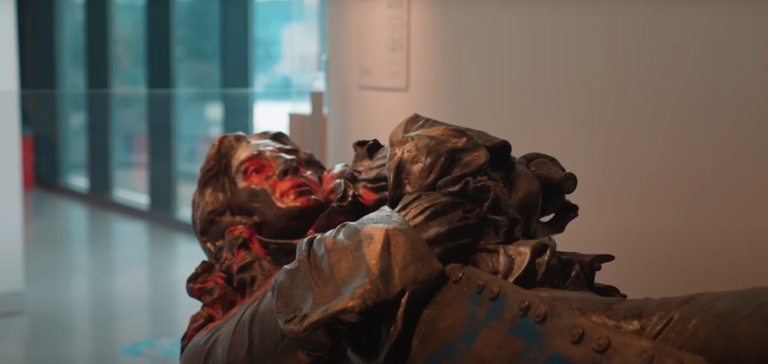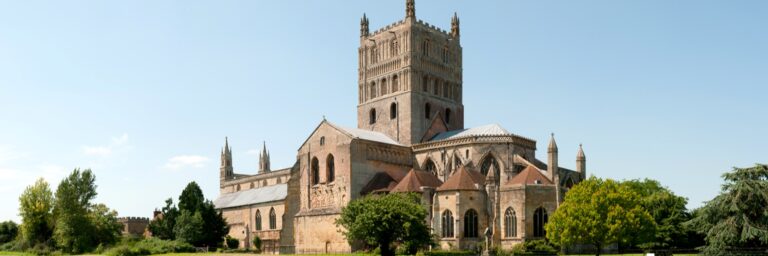| CC4HH
Oral History on Cheltenham’s Lower High Street
By Tom Adams (Second Year Undergraduate History Student)
In a new series of posts, History students at the University of Gloucestershire will be outlining progress on new research projects for the 2019 Gloucester History Festival.
As part of a research internship on my degree in History, I took the opportunity to investigate the history of the Lower High street area in Cheltenham as part of the ongoing research project, Cheltenham’s Lower High Street: Past, Present & Future. Often perceived as being a less prestigious area of the town, this Lower High Street now has an abundance of different cultures and nationalities, incorporating a mixture of different shops and markets, including barber shops, liquor stores, restaurants, takeaways, and clothing stores. This is the Cheltenham I currently live in, but I took up this placement as I was curious to find out more about the area and the people that once lived there decades ago. This, of course entailed talking to people that used to inhabit this area.
Firstly, Dr Christian O’Connell gave me an audio recording to transcribe from an interview conducted as part of the project. This allowed me to gain an understanding of the sort of questions to ask, the methodology of asking questions and the techniques to consider when conducting an oral history interview. The interview was with a lady called Lynn Ricketts, who grew up in the area. She gave an insight into what life was like living there during the second half of the twentieth century, which was very much in line with the memories of other interviewees who recalled a bustling neighbourhood and were nostalgic for the tightly knit communities that surrounded the High Street. She also remarked how the area had changed and deteriorated over the years.
Following on from this interview, I arranged an interview of my own with Jess Harrod, a lady who coincidently works at the University of Gloucestershire. There were a number of questions I prepared concerning the life in the area. I was particularly interested to find out if the people that lived on the Lower High Street were mixed with the members of society that lived in the more prestigious areas of ‘Regency Cheltenham,’ or whether they lived completely separate lives. Her response was interesting. From memory she said that there was very little interaction between the two sides of Cheltenham and in fact, a vast majority of people that lived in the Lower High Street area never even visited places like the Promenade or Montpellier, which was surprising. In addition, I also found out that Jess’s grandparents owned the beloved Wembley Café that was extremely popular to many of the residents in the area, and is even mentioned in the famous Lower High Street poem. The Café was burnt down in 1979, amazingly, no one was hurt and no one ever found out the cause of the fire. However, after it burnt down, the event was so big it actually made it as a story in the Echo newspaper. After the fire, the building was abandoned by Jess’s grandparents and was to be a café no more.

I was also intrigued to find out about the day to day lives of people that lived in the area, what they did for entertainment and their quality of life. Through interviewing Jess I found out that community was everything. Unlike today, children spent all day outside playing, or in Jess’ case, hanging around her grandparents Café. It seems to have been a really happy place, everyone knew everyone, and the area was, in essence, self-sufficient. No one needed to visit the Promenade, everything that people needed to live was within an arm’s reach, be that the butchers, bakery, or indeed shops such as the Wembley Café. Having read some of the reports from last year on the Lower High Street area, her memories were in contrast to stories I’d read about violent crime. Having asked Jess this very question I found out that there were indeed murders that took place in the area. Jess told me about one which took place not too far from her Grandparents café, where a boy called Murray Pugh was stabbed in March 1993. The murder also made it to the Echo newspaper, and as a result of the murder a ‘Murray Pugh Memorial Fund’ was set up to offer assistance of up to £2,000 to students and staff working with children with special needs at the University of Gloucestershire, and to children with physical disabilities themselves at the university.

This whole investigative process has helped develop my understanding of the importance of oral history. As oral historians Robert Perks and Alistair Thomson suggest, ‘the interviewing of eye-witness participants in the events of the past for the purposes of historical reconstruction has transformed the practice of contemporary history in many countries.’ I think I also agree with their metaphor that ‘every old man that dies is a library that burns.’ In addition, by working on the Lower High Street project, I have seen how ‘oral history has allowed access so that social groups in communities are often inadequately or even completely unrepresented by traditional archival sources’ (Peter Claus and John Marriott, History: An Introduction to Methods, Theory and Practice, 2012). Through my own investigation and conducting of interviews, I have truly developed a sound understanding of the practice of oral history.



